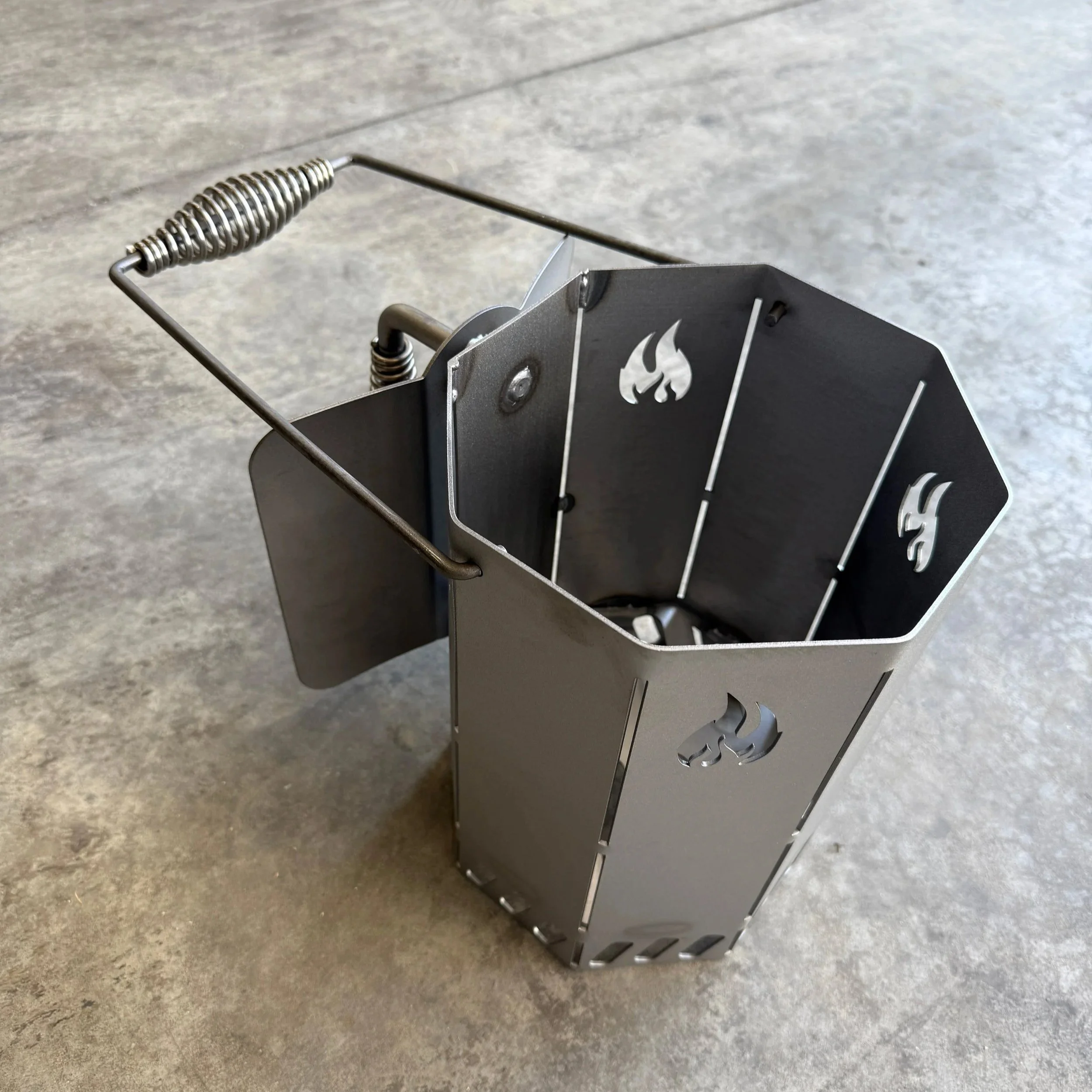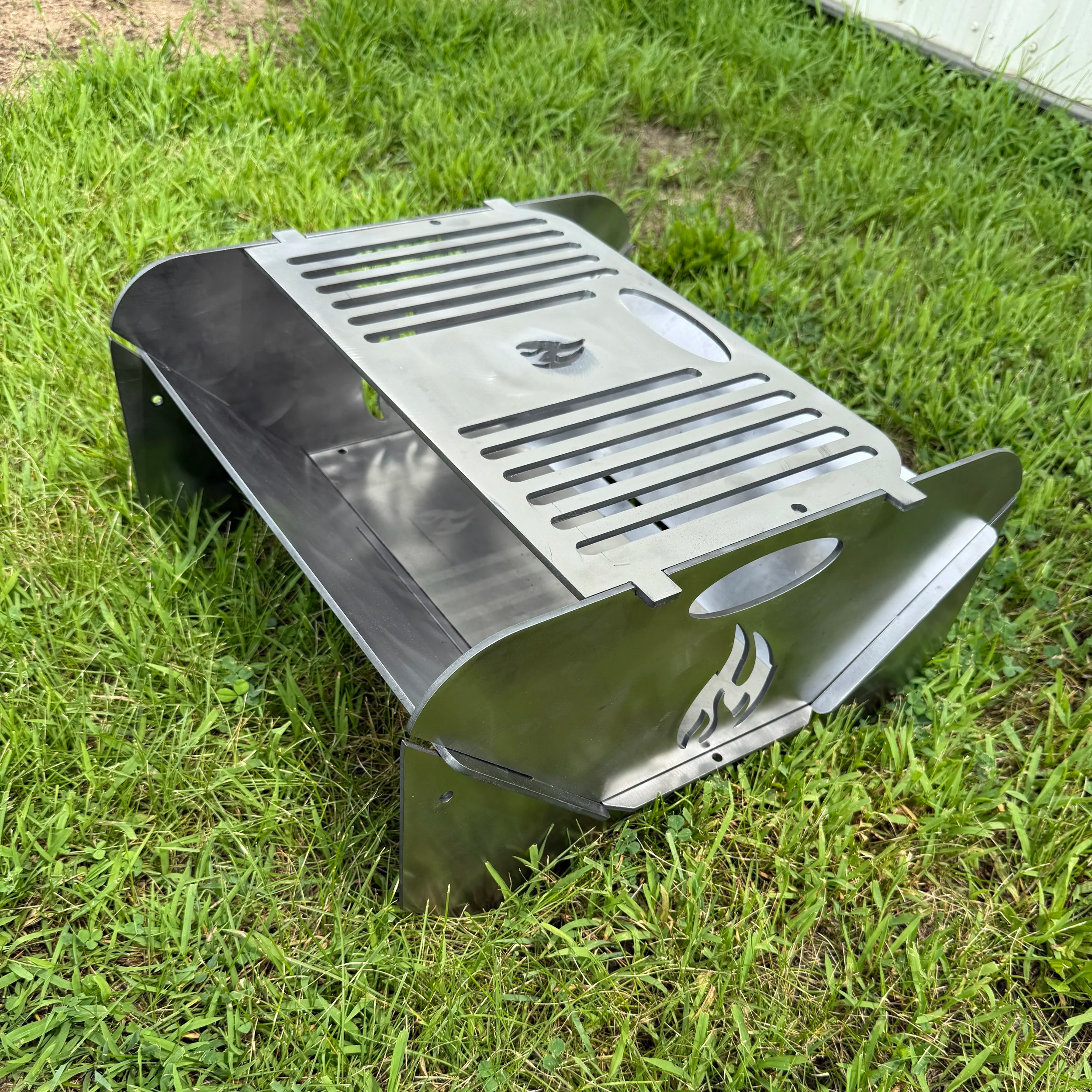When to Replace Grill Grates
Grilling is an incredibly popular way to cook food, especially during the warm summer months. And just like any other kitchen tool, your grill needs regular maintenance to keep it in top shape. One of the most important parts to care for is the grill grates.
Understanding Grill Grates
Grill grates are the metal pieces inside your grill where you place your food. They're crucial because they allow heat to pass through from the flame, cooking the food evenly. There are different types of grill grates, each with its own pros and cons.
Types of Grill Grates
Cast Iron Grates: Known for excellent heat retention, cast iron grates can give your food those perfect grill marks. However, they require regular seasoning and can rust if not cared for properly.
Stainless Steel Grates: These are very durable and resistant to rust. While they might not retain heat as well as cast iron, they are easier to clean.
Porcelain-Coated Grates: Often found in more affordable grills, these grates provide a good balance between heat retention and ease of cleaning. However, the porcelain coating can chip, which can lead to rusting.
Wear and Tear
Grill grates undergo wear and tear over time due to exposure to high heat, food acids, and weather elements. Regular maintenance can extend their lifespan, but eventually, they will need to be replaced.
Signs It’s Time to Replace Your Grill Grates
Knowing when to replace your grill grates is crucial for both safety and cooking efficiency. Here are some signs to look out for:
Rust Issues
Rust is one of the biggest problems you might face with grill grates. A small amount of surface rust can often be cleaned off with a grill brush or steel wool. However, if the rust is deep and persistent, it's a sign that the metal has been compromised and the grates– and potentially other grilling accessories– should be replaced.
Chips and Cracks
Porcelain-coated grates are prone to chipping. Cracks and chips can make the surface uneven, making it hard to cook food evenly. They also create openings for moisture, which can lead to rust. If you notice significant chipping or cracking, it's time for new grates.
Persistent Food Residue
If you find that no matter how hard you scrub, you can't remove the food residue from your grates, it's a sign they've reached the end of their life. Built-up debris not only affects the taste of your food but can also pose health risks.
Overall Grill Health
Sometimes, the problem isn’t just with the grates; other parts of your grill may also show signs of wear. If you notice any other parts of your grill or smoker are damaged or deteriorating, it might be a good idea to consider replacing more than just the grates.
How to Clean and Maintain Your Grill Grates
Proper cleaning and maintenance can significantly extend the life of your grill grates. We have a FULL writeup on how to clean your grill grates, but we’ve included the basics below.
Cleaning Techniques
Using Heat: Preheat your grill for about five minutes before using a grill brush to scrub off any residual food particles. The heat helps loosen the food, making it easier to clean.
Soap and Water: Occasionally, take your grates out and wash them with warm, soapy water. This helps remove grease and additional residue that a brush might miss.
Preventive Measures
To keep your grill grates in good condition, make it a habit to clean them after each use. Also, apply a thin coat of oil to the grates to prevent rust.
Regular Maintenance Tips
Seasoning Cast Iron Grates: Just like a cast iron skillet, your cast iron grates need to be seasoned. Apply a thin layer of vegetable oil and heat them to create a non-stick, rust-resistant surface.
Inspecting for Damage: Regularly check your grates for signs of rust, chips, or cracks. Catching these early can save you from having to replace them prematurely.
Best Grill Grate Options
Choosing the right grill grates depends on how you grill and what you prioritize in terms of maintenance and cooking quality.
Material Comparison
Stainless Steel: Very durable and resistant to rust but can be harder to clean.
Cast Iron: Excellent for even heating and searing but requires more maintenance.
Porcelain-Coated Steel: Easier to clean and provides good heat, but the coating can chip.
Suitability for Various Types of Grilling
If you enjoy cooking steaks and want great grill marks, cast iron might be the best choice. For those who prioritize ease of cleaning and durability, stainless steel is a solid option. Porcelain-coated grates offer a middle ground but be prepared for potential chipping.
Replacing Your Grill Grates
Replacing grill grates is typically straightforward, but there are some steps to follow to make sure you do it correctly.
Step-by-Step Guide
Measure Your Old Grates: Before buying new grates, measure your old ones to ensure the new ones will fit.
Choose Your Material: Decide whether you want to stick with the same material as your old grates or try something new.
Remove Old Grates: Simply lift them out of the grill.
Install New Grates: Place the new grates in the same position as the old ones.
Tools Required
You generally won't need many tools to replace your grill grates. A tape measure for sizing and a grill brush for pre-installation cleaning are usually enough.
Additional Tips for Grate Grilling
Mastering the art of grilling involves more than just having a good set of grates. Here are some tips to take your grilling to the next level.
Techniques for Optimal Results
Preheating: Always preheat your grill to the desired temperature before cooking. This helps achieve even cooking.
Oil Your Grates: Lightly oil your grates before cooking to prevent sticking and make cleaning easier later.
Recipes and Grilling Techniques
Burgers: Use high heat to sear the outside while keeping the inside juicy.
Veggies: Toss vegetables in olive oil and season before grilling to enhance their natural flavors.
Steaks: Achieve restaurant-quality grill marks by cooking your steak on high heat for a few minutes on each side.
Conclusion
Well-maintained grill grates are essential for safe and enjoyable grilling. By regularly cleaning and inspecting your grates, you can ensure they last longer and perform better. Remember, a well-cared-for grill will serve you delicious meals for years to come. So take the time to maintain your grill grates and enjoy the many cookouts to come!
And hey, while you’re here, you might want to check out our article on cast iron vs. stainless steel. See you there!




